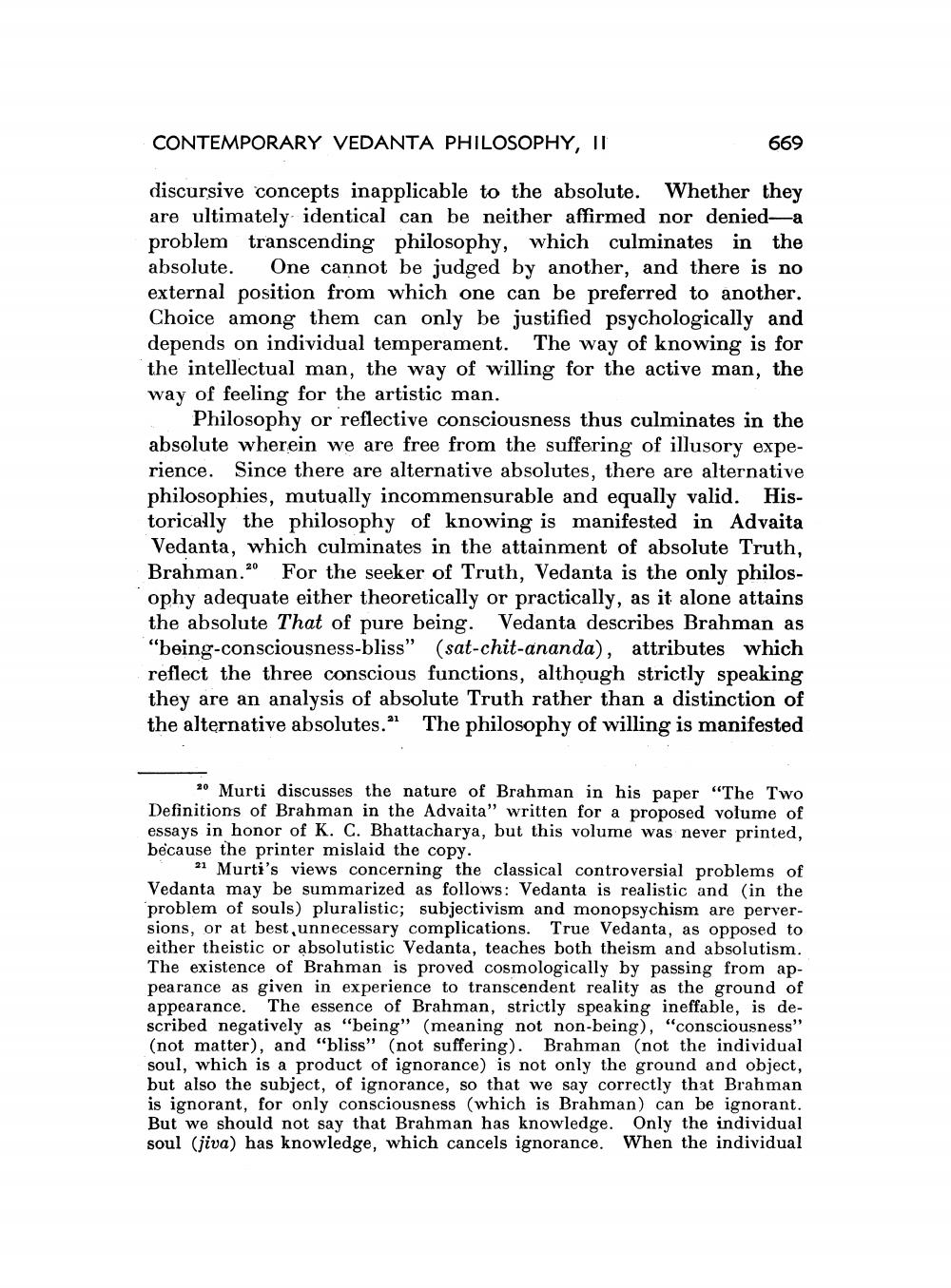________________
CONTEMPORARY VEDANTA PHILOSOPHY, IT
669
discursive concepts inapplicable to the absolute. Whether they are ultimately identical can be neither affirmed nor denied—a problem transcending philosophy, which culminates in the absolute. One cannot be judged by another, and there is no external position from which one can be preferred to another. Choice among them can only be justified psychologically and depends on individual temperament. The way of knowing is for the intellectual man, the way of willing for the active man, the way of feeling for the artistic man.
Philosophy or reflective consciousness thus culminates in the absolute wherein we are free from the suffering of illusory experience. Since there are alternative absolutes, there are alternative philosophies, mutually incommensurable and equally valid. Historically the philosophy of knowing is manifested in Advaita Vedanta, which culminates in the attainment of absolute Truth, Brahman. For the seeker of Truth, Vedanta is the only philosophy adequate either theoretically or practically, as it alone attains the absolute That of pure being. Vedanta describes Brahman as "being-consciousness-bliss" (sat-chit-ananda), attributes which reflect the three conscious functions, although strictly speaking they are an analysis of absolute Truth rather than a distinction of the alternative absolutes. The philosophy of willing is manifested
20 Murti discusses the nature of Brahman in his paper "The Two Definitions of Brahman in the Advaita" written for a proposed volume of essays in honor of K. C. Bhattacharya, but this volume was never printed, because the printer mislaid the copy.
21 Murti's views concerning the classical controversial problems of Vedanta may be summarized as follows: Vedanta is realistic and (in the problem of souls) pluralistic; subjectivism and monopsychism are perversions, or at best, unnecessary complications. True Vedanta, as opposed to either theistic or absolutistic Vedanta, teaches both theism and absolutism. The existence of Brahman is proved cosmologically by passing from appearance as given in experience to transcendent reality as the ground of appearance. The essence of Brahman, strictly speaking ineffable. is described negatively as "being” (meaning not non-being), "consciousness" (not matter), and "bliss" (not suffering). Brahman (not the individual soul, which is a product of ignorance) is not only the ground and object, but also the subject, of ignorance, so that we say correctly that Brahman is ignorant. for only consciousness (which is Brahman) can be ignorant. But we should not say that Brahman has knowledge. Only the individual soul (jiva) has knowledge, which cancels ignorance. When the individual




